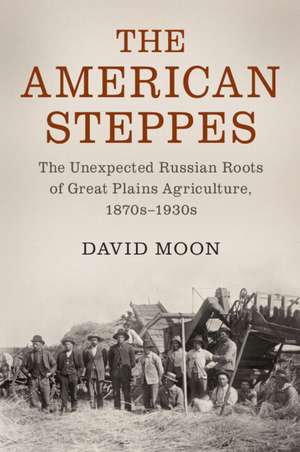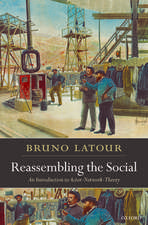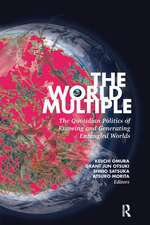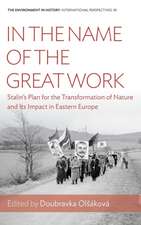The American Steppes: The Unexpected Russian Roots of Great Plains Agriculture, 1870s–1930s: Studies in Environment and History
Autor David Moonen Limba Engleză Paperback – 26 oct 2022
| Toate formatele și edițiile | Preț | Express |
|---|---|---|
| Paperback (1) | 235.98 lei 6-8 săpt. | |
| Cambridge University Press – 26 oct 2022 | 235.98 lei 6-8 săpt. | |
| Hardback (1) | 771.56 lei 3-5 săpt. | |
| Cambridge University Press – apr 2020 | 771.56 lei 3-5 săpt. |
Din seria Studies in Environment and History
-
 Preț: 231.59 lei
Preț: 231.59 lei -
 Preț: 191.12 lei
Preț: 191.12 lei -
 Preț: 243.02 lei
Preț: 243.02 lei -
 Preț: 188.70 lei
Preț: 188.70 lei -
 Preț: 204.55 lei
Preț: 204.55 lei -
 Preț: 147.64 lei
Preț: 147.64 lei -
 Preț: 201.67 lei
Preț: 201.67 lei -
 Preț: 137.74 lei
Preț: 137.74 lei - 14%
 Preț: 771.56 lei
Preț: 771.56 lei -
 Preț: 231.54 lei
Preț: 231.54 lei -
 Preț: 156.89 lei
Preț: 156.89 lei -
 Preț: 239.72 lei
Preț: 239.72 lei -
 Preț: 200.99 lei
Preț: 200.99 lei -
 Preț: 206.52 lei
Preț: 206.52 lei -
 Preț: 199.05 lei
Preț: 199.05 lei -
 Preț: 431.15 lei
Preț: 431.15 lei -
 Preț: 322.04 lei
Preț: 322.04 lei -
 Preț: 204.48 lei
Preț: 204.48 lei -
 Preț: 299.23 lei
Preț: 299.23 lei -
 Preț: 332.81 lei
Preț: 332.81 lei -
 Preț: 239.55 lei
Preț: 239.55 lei -
 Preț: 225.79 lei
Preț: 225.79 lei -
 Preț: 285.93 lei
Preț: 285.93 lei -
 Preț: 270.25 lei
Preț: 270.25 lei -
 Preț: 208.68 lei
Preț: 208.68 lei -
 Preț: 275.85 lei
Preț: 275.85 lei -
 Preț: 323.05 lei
Preț: 323.05 lei -
 Preț: 234.83 lei
Preț: 234.83 lei -
 Preț: 272.97 lei
Preț: 272.97 lei - 11%
 Preț: 528.82 lei
Preț: 528.82 lei - 11%
 Preț: 432.64 lei
Preț: 432.64 lei -
 Preț: 252.69 lei
Preț: 252.69 lei -
 Preț: 278.72 lei
Preț: 278.72 lei - 14%
 Preț: 756.70 lei
Preț: 756.70 lei -
 Preț: 264.09 lei
Preț: 264.09 lei -
 Preț: 440.76 lei
Preț: 440.76 lei
Preț: 235.98 lei
Nou
Puncte Express: 354
Preț estimativ în valută:
45.16€ • 46.25$ • 37.57£
45.16€ • 46.25$ • 37.57£
Carte tipărită la comandă
Livrare economică 18 martie-01 aprilie
Preluare comenzi: 021 569.72.76
Specificații
ISBN-13: 9781107503205
ISBN-10: 1107503205
Pagini: 471
Ilustrații: 1 b/w illus. 6 maps 1 table
Dimensiuni: 152 x 229 x 27 mm
Greutate: 0.69 kg
Editura: Cambridge University Press
Colecția Cambridge University Press
Seria Studies in Environment and History
Locul publicării:New York, United States
ISBN-10: 1107503205
Pagini: 471
Ilustrații: 1 b/w illus. 6 maps 1 table
Dimensiuni: 152 x 229 x 27 mm
Greutate: 0.69 kg
Editura: Cambridge University Press
Colecția Cambridge University Press
Seria Studies in Environment and History
Locul publicării:New York, United States
Cuprins
Introduction; Part I. Contexts: 1. Settlement; 2. Barriers; 3. Bridges; Part II. Transfers: 4. Wheat; 5. Soil science I; 6. Soil science II; 7. Shelterbelts I; 8. Shelterbelts II; 9. Tumbleweed; Conclusion; List of archival collections cited; Index.
Recenzii
'A fresh and significant new perspective on the perception and understanding of the Great Plains of North America in the light of scientific research carried out far away, on the other side of the planet, the Russian steppe country, which turns out to have had many surprising linkages with its North American counterpart.' Donald Worster, Distinguished Foreign Expert, Renmin University of China
'The American Steppes is a heartening exemplar of transnational history done rightly and responsibly. David Moon has the reach to comprehend the complicated and cumulative processes by which Russian experience contributed to wheat culture, soil science, and shelterbelt establishment on the plains, and he does it with depth, through archival research that exhibits rich layers, like chernozem soils.' Tom Isern, Professor of History and University Distinguished Professor, North Dakota State University
'David Moon's terrific book demonstrates how deeply prior pioneering experience and scientific study in the Russian steppes influenced farming on the North American Great Plains (or, as Moon so appropriately dubs them, 'the American Steppes'). This welcome corrective to generations of Great Plains scholarship permanently alters our telling of an iconic American environmental history.' Geoff Cunfer, University of Saskatchewan
'This remarkable, incredibly well-researched book reminds readers that national differences are outweighed not just by similarities but by direct connections as well … Highly recommended.' T. P. Bowman, Choice
' …Moon's study is eminently convincing. He makes careful, evidence based connections, though after reading it is tempting to search for Russian influences elsewhere in the social realism of the Newton sculpture for instance. One admirable feature of Moon's text is his clear delineation of the book's aims. a coherent read. … The American Steppes is an important entry into the growing body of literature that positions the American West within global histories. Aside from the obvious audiences of environmental and agricultural historians, The American Steppes will be of interest to anyone looking for a transnational study that does not devolve into mere comparisons. Finally, Moon's book will appeal to Plains people who are interested in a more nuanced story of their Russian roots.' Michaela Rife, Agricultural History Review
'… with this rich, stimulating study, Moon had done much to push historians of Russia and the United States to think more comparatively and to question entrenched notions of Russian and American uniqueness.' Sarah Cameron, The Russian Review
'the work is a masterpiece.' Royden Loewen, Journal of Mennonite Studies
'The American Steppes is a heartening exemplar of transnational history done rightly and responsibly. David Moon has the reach to comprehend the complicated and cumulative processes by which Russian experience contributed to wheat culture, soil science, and shelterbelt establishment on the plains, and he does it with depth, through archival research that exhibits rich layers, like chernozem soils.' Tom Isern, Professor of History and University Distinguished Professor, North Dakota State University
'David Moon's terrific book demonstrates how deeply prior pioneering experience and scientific study in the Russian steppes influenced farming on the North American Great Plains (or, as Moon so appropriately dubs them, 'the American Steppes'). This welcome corrective to generations of Great Plains scholarship permanently alters our telling of an iconic American environmental history.' Geoff Cunfer, University of Saskatchewan
'This remarkable, incredibly well-researched book reminds readers that national differences are outweighed not just by similarities but by direct connections as well … Highly recommended.' T. P. Bowman, Choice
' …Moon's study is eminently convincing. He makes careful, evidence based connections, though after reading it is tempting to search for Russian influences elsewhere in the social realism of the Newton sculpture for instance. One admirable feature of Moon's text is his clear delineation of the book's aims. a coherent read. … The American Steppes is an important entry into the growing body of literature that positions the American West within global histories. Aside from the obvious audiences of environmental and agricultural historians, The American Steppes will be of interest to anyone looking for a transnational study that does not devolve into mere comparisons. Finally, Moon's book will appeal to Plains people who are interested in a more nuanced story of their Russian roots.' Michaela Rife, Agricultural History Review
'… with this rich, stimulating study, Moon had done much to push historians of Russia and the United States to think more comparatively and to question entrenched notions of Russian and American uniqueness.' Sarah Cameron, The Russian Review
'the work is a masterpiece.' Royden Loewen, Journal of Mennonite Studies
Notă biografică
Descriere
Explores the transnational movements of people, plants, agricultural sciences, and techniques from Russia's steppes to North America's Great Plains.



























